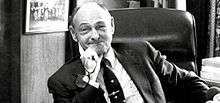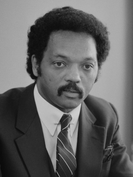Democratic Party presidential primaries, 1996
Democratic Presidential Primaries, 1996

|
|
|
|
|
|
The 1996 Democratic presidential primaries were the selection process by which voters of the Democratic Party chose its nominee for President of the United States in the 1996 U.S. presidential election. Incumbent President Bill Clinton was again selected as the nominee through a series of primary elections and caucuses culminating in the 1996 Democratic National Convention held from August 26 to August 29, 1996 in Chicago, Illinois.
Primary race overview
With the advantage of incumbency, Bill Clinton's path to renomination by the Democratic Party was uneventful. At the 1996 Democratic National Convention, Clinton - along with incumbent Vice President Al Gore - was renominated following a primary race in which he faced only token opposition. Perennial candidate Lyndon LaRouche qualified for one delegate from Virginia and one delegate from Louisiana, but the state parties refused to award him delegates and the First District Court of Appeals upheld their decision.[1] Former Pennsylvania governor Bob Casey contemplated a challenge to Clinton, but health problems forced Casey to abandon a bid.[2][3] That left Jimmy Griffin, the former mayor of Buffalo, New York, as the highest-ranking challenger still in the race. After finishing in eighth place, behind even the perennial candidates, in the New Hampshire primaries, Griffin dropped out of the race. Clinton easily won primaries nationwide, with margins consistently higher than 80%.[4]
Candidates
Nominee
Withdrew during primaries
Potential candidates who did not run
Senator Bob Kerrey of Nebraska
See also
References
|
|---|
| | Election timelines | |
|---|
| | National polling | |
|---|
| | State polling | |
|---|
| | Fundraising | |
|---|
| | Debates | |
|---|
| | Straw polls | |
|---|
| | Major events | |
|---|
| Caucuses
and primaries | |
|---|
| | Results breakdown | |
|---|
| National
conventions | |
|---|
| | Reforms | |
|---|
|



